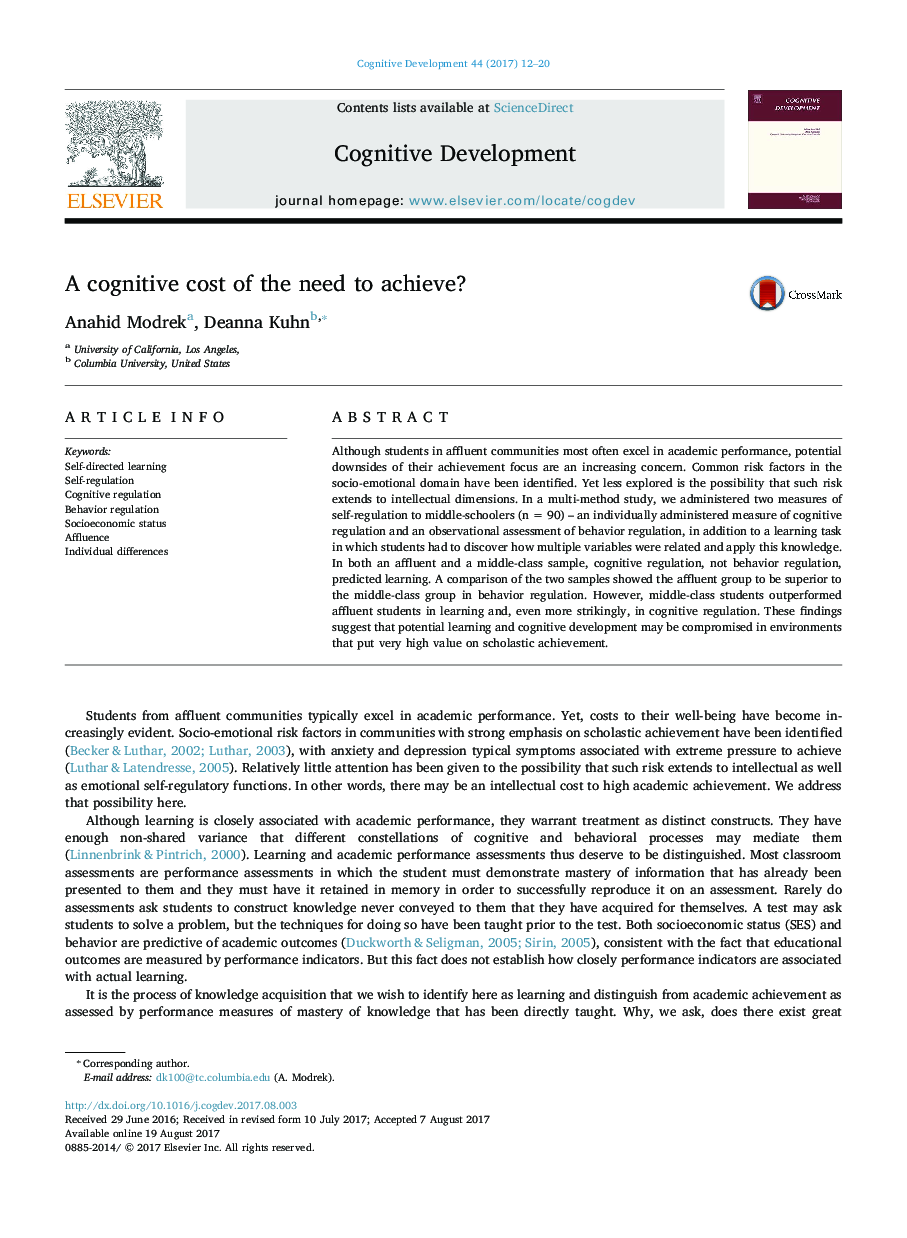| Article ID | Journal | Published Year | Pages | File Type |
|---|---|---|---|---|
| 5039622 | Cognitive Development | 2017 | 9 Pages |
â¢Cognitive regulation, but not behavior regulation, predicts skill in self-directed learning.â¢Affluent students perform less well than middle-class students on a self-directed learning task.â¢Achievement pressure may have cognitive as well as emotional costs.
Although students in affluent communities most often excel in academic performance, potential downsides of their achievement focus are an increasing concern. Common risk factors in the socio-emotional domain have been identified. Yet less explored is the possibility that such risk extends to intellectual dimensions. In a multi-method study, we administered two measures of self-regulation to middle-schoolers (n = 90) - an individually administered measure of cognitive regulation and an observational assessment of behavior regulation, in addition to a learning task in which students had to discover how multiple variables were related and apply this knowledge. In both an affluent and a middle-class sample, cognitive regulation, not behavior regulation, predicted learning. A comparison of the two samples showed the affluent group to be superior to the middle-class group in behavior regulation. However, middle-class students outperformed affluent students in learning and, even more strikingly, in cognitive regulation. These findings suggest that potential learning and cognitive development may be compromised in environments that put very high value on scholastic achievement.
